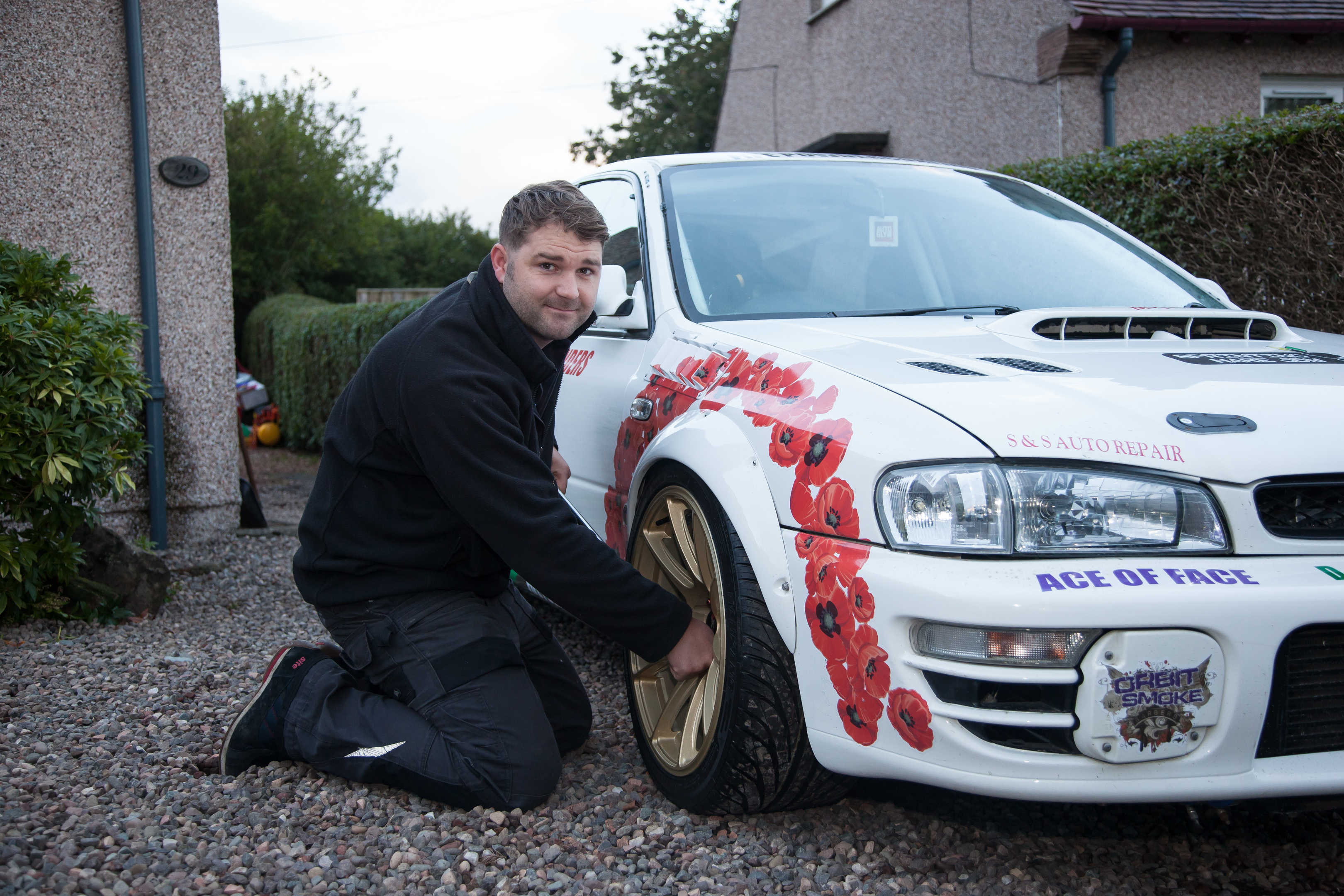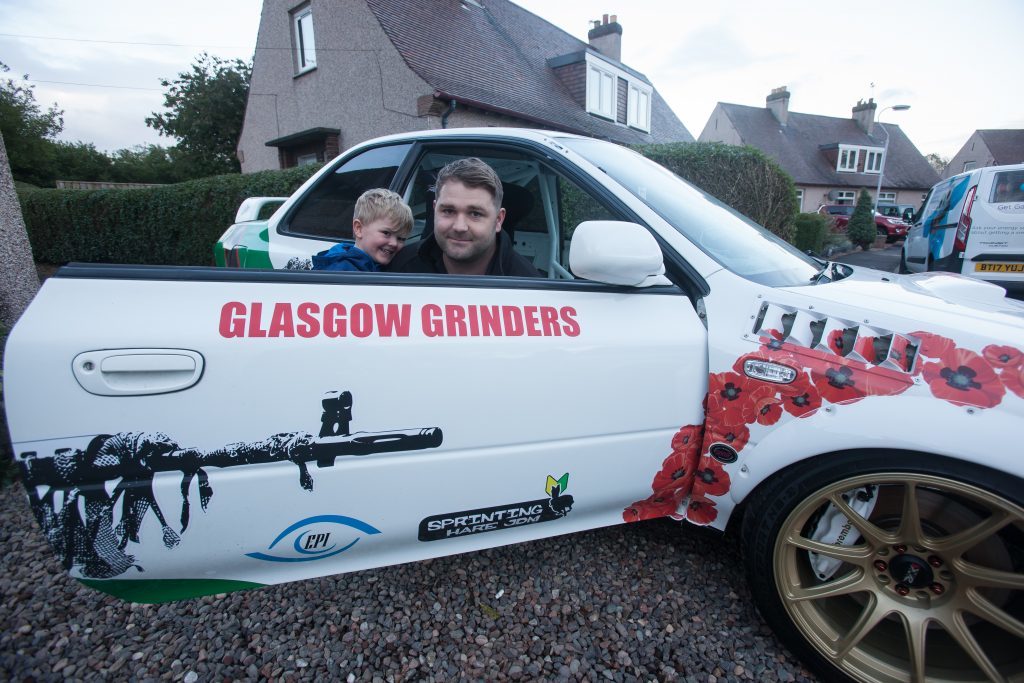
IN his garage-turned-car workshop, Kenny Watson is refitting the brake line of his second-hand Subaru Impreza.
There’s a metallic clang in the background as four-year-old Harris happily mixes up his dad’s tools.
But just one year ago, this ordinary father-son experience was unthinkable for the decorated war hero.
“When my son was born, it felt like the worst day of my life,” admitted the 28-year-old, from Fife.
At the time, Kenny was waging a mental battle with PTSD.
And the horrors he faced during gruelling tours of Iraq and Afghanistan still raged in his mind.
“At the time, I couldn’t physically be around children. Hearing their screams was one of the triggers that took me straight back,” said Kenny. “I thought I was still on tour amid mass casualties and would act out. Harris wouldn’t even come near me.”
But today, Kenny is on the fast-track to recovery thanks to an unlikely new hobby – building a race car.
Three years of therapy has helped him face up to what he saw on the frontline.
Yet his family life really started to improve when his wife suggested he focus on a project, and Kenny chose to pursue his love of motor racing.
He said: “I had this old, ordinary car just sitting there and decided to turn it into a race car. The way this has brought me forward and helped my recovery is massive.”
Kenny joined the army at 16 and later went on to serve as a sniper with Edinburgh battalion, The 3 Rifles.
He was officially diagnosed with PTSD in 2014, and was later medically discharged from the military in February 2017 due to back injuries and hearing loss he sustained on tour.
Struggling to separate past from present, Kenny admits horrific flashbacks drove him to self-harm.
In his darkest moments, he even tried to commit suicide.
“When I was alone in the house, I started getting social anxiety and thought I was back on tour,” he recalled.
“I smashed my trophies and tried to burn my medals. I just wanted whatever this thing was inside me out.”
His erratic behaviour threatened to permanently separate Kenny from his partner and their young son.
Kenny added: “PTSD is an invisible injury that can destroy relationships and rip apart your career and who you are as a person.
“Everything started to engulf me because I didn’t have a distraction.”
But it turned out the distraction Kenny needed was sitting in his garage all along. Learning as he went, Kenny dedicated a few hours every day to his new project, which he named PTSD Performance.
The family garage became a safe haven, and as the car took on a new life, so did Kenny. Best of all, it’s helped him forge a strong bond with his son.
“It would have been so easy to shut the garage door but working on the car naturally brings us together,” added the proud dad.
“Now we’re joined at the hip! He loves the car and comes with me to all the races.”
Harris now has his own racing suit, helmet and even a small replica of his dad’s car.
Next year, Kenny plans to compete in the Super Lap Scotland competition at Knockhill Racing Circuit in Fife.
While keeping his own recovery on track, the future racer hopes his story will help challenge stigmas around mental health and PTSD, and help raise cash for one of his key supporters, The Army Benevolent Fund.
Kenny, who now works as a smart meter installer, also plans to partner with Disabled Motorsport Scotland to help others get into racing.
“It’s about rebuilding your life and having a sense of purpose,” he added.
“I still have bad days but now I’m better at dealing with them.
“I’ll never allow myself to fall backward. I’m not the same person I was a year ago.”
Find out more at www.facebook.com/ptsdperformance

Enjoy the convenience of having The Sunday Post delivered as a digital ePaper straight to your smartphone, tablet or computer.
Subscribe for only £5.49 a month and enjoy all the benefits of the printed paper as a digital replica.
Subscribe